Last Updated on April 3, 2024

Estimated reading time: 30 minutes
By Jim Ferri
I travel an incredible number of miles annually. And on these numerous trips, I find the only thing worse than wasting time is wasting money by not budgeting for my trip.
And I know I’m not alone.
Most of us continually seek ways to minimize our travel costs while paradoxically increasing our travel time and distance.
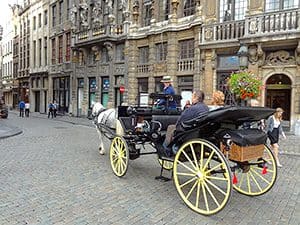
At the same time, we’re both cutting costs and trying to maximize our chances of having the most enjoyable trips possible. We scour websites looking for great deals and micro-manage our loyalty points, searching for ways to maximize their worth to better budget our trips.
As you probably have also, I’ve spent many hours planning my travels. In fact, at times, I’ve been fanatical in attempting to create the perfect trip at the ideal price.
But as we all know from personal experience, sometimes it’s not enough. Rarely will everything go perfectly since so many things are beyond our control.
But, importantly, I’ve also learned something else: vacations don’t necessarily need to be expensive. There are many ways to budget your trips and save both money and time. And, of course, also enjoy a memorable trip.
Here are 41 budget strategies and tactics to cut your trip costs and increase your vacation pleasure.
Table of contents
- Know Your Limitations When Developing A Trip Budget
- Plan Wisely
- Make Use of a Travel-Planning Site
- Time Your Travel
- Stretch Your Budget
- Preview the Costs of Travel to Different Areas
- Accrue Points to Fund Your Travel
- Know the Exchange Rate Before You Go
- Consider Travel Insurance
- Get A Less Expensive Rental Car
- Call the Hotel Directly
- Pack Smarter to Avoid Luggage Fees
- Use a Trip-Planner App
- Take a Walking Tour
- Ship Your Luggage Ahead
- Check the Validity of Your Passport
- Book As a Group
- Fly In the Morning
- Purchase Tickets As a Group
- Avoid Flight Delays
- Don’t Choose Your Airline Seat at the Airport
- Finagle a Better Seat
- Be Careful With Your Luggage
- Collect for Those Delays
- Save Money: Use Public Transportation
- Eat Cheap But Well
- Make Your Food Budget Go Further
- Combine Several Destinations
- Use Your Rail Pass to the Max on a Budget Trip
- Know How to Pay to Save Money
- Budget by Using Villas, All-Inclusives, Hostels
- Should You Make It a Road Trip?
- Know How Much to Tip
- Heading Off? Breeze Through Security
- On Your Return Breeze Through Passport Control and Customs
- Clear Customs Outside the USA

Know Your Limitations When Developing A Trip Budget
Budget Travel Tip #1: If you want a vacation that doesn’t cost a small fortune, you need to plan, plan, plan in advance.
Simply, you can keep your costs down by creating a budget and sticking to it. You needn’t be Scrooge-like, but you don’t want to spend next year’s money on this year’s trip. Knowing your limits is essential before planning any trip in your home country or overseas.
Understand that budgeting for a trip doesn’t necessarily mean you have to shorten it. You may only have to find other, more budget-friendly options. For example, if a city is too expensive, stay in another area nearby and make day trips to it. If your hotel prices are high during a national or international holiday, you may need to move your dates a few days.
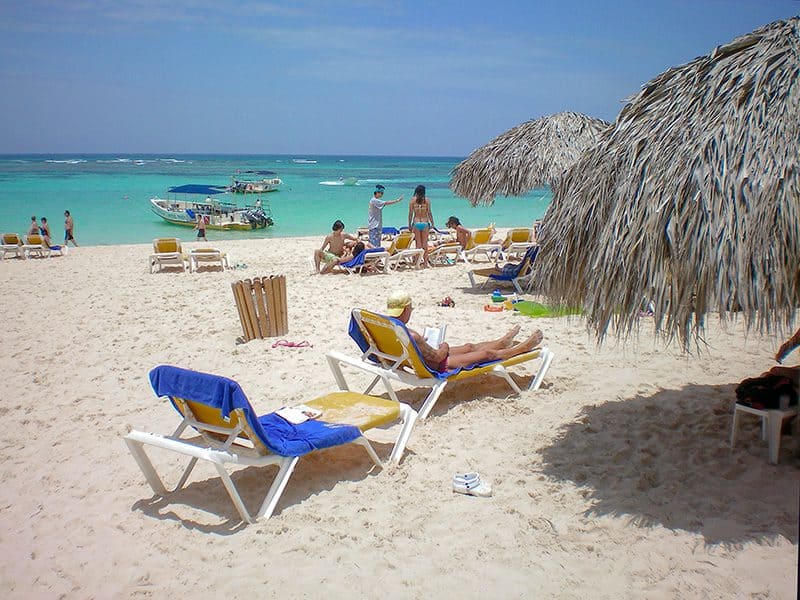
Plan Wisely
You must plan as early as possible. That will give you the best chances for a good trip budget, a cheaper flight and a less expensive hotel room. It won’t guarantee lower prices but will provide you with a larger window to find offered discounts. In other words, the larger your planning window, the more apt you are to find lower prices on hotels and airlines.
To stretch your travel budget, you need to have a trip plan. It needn’t be an hour-by-hour itinerary since being spontaneous is one of the joys of travel. But you should know how long you want to spend in each city.
You can also stretch your budget by choosing lesser-known destinations instead of the popular ones. In the Greek Islands, for example, choose some of the lesser-known Greek islands and avoid Santorini and other tourism hotspots. In Belgium, stay in beautiful Ghent (as the Belgians do) and take a day trip to Bruges, another hotspot, rather than stay in a pricey hotel.
Here’s another thing to consider if you’re budgeting a trip travel to more than one country. Take a night train to your furthest destination since it will save you the cost of a night in a hotel.
See: Best Greek Islands to Visit (With Map) / An Incredible Brussels Food-Filled Weekend / In Search of the Best Chocolate in Bruges (With a Map)
Make Use of a Travel-Planning Site
One incredibly useful site I use often is Rome2Rio. Enter your starting city and destination, and it will tell you how to get there instantly. It also shows you the means of transport (car, bus, plane, foot, etc.), the cost, and the travel time. Sometimes, you’ll see that a plane isn’t the way to go. It’s a great app to plan any trip.

Time Your Travel
Traveling in the off- or low-season is the best way to save money when developing a budget for a trip. And don’t assume what the low or high season is anywhere, since different destinations have different off-seasons, even in the same country. In Switzerland, for example, summer is the high season in beautiful Interlocken but low season in the famous ski resort of Zermatt.
The same is true in the US. Miami’s high season is winter, the low season for much of the USA. The exceptions, of course, are the many ski resorts in Colorado, Utah, and other states.
However, the time I enjoy most (and travel the most) is the “shoulder season.” That’s the first or last few weeks of high season (when the crowds have diminished) through the first few weeks of low season (when the weather is still good). You’ll also find lower prices during this time, helping you to trim your travel budget.

Stretch Your Budget
An excellent way to budget your trips and save money is to travel with a friend to split expenses. You may also want to take advantage of a vacation package from an airline that bundles airfare and hotel costs into a better deal.
Also, be flexible on the destination you’re choosing. You may have dreamt for years about traveling to Paris. But if that is too expensive, look at another, less costly city in France, perhaps traveling to Honfleur or Normandy for several days.

Preview the Costs of Travel to Different Areas
Many cities worldwide can be expensive to visit, others less expensive. Luckily, you can find many rankings of them online.
To find the most current information on the cost of places to travel, Google “cost of visiting cities in _______” (insert a continent, country, or area). Be aware, however, that these rankings change every year. You should only consider the previous year (2023 rankings for travel in 2024, for example).
One good source of information in Europe I’ve used is the City Cost Barometer published annually by the Post Office in the UK. You’ll find other barometers that will help put together a budget trip published by regional organizations for Asia, Australia, and other regions.

Accrue Points to Fund Your Travel
Many people accrue points on their credit cards to use for traveling.
But since they don’t have a plan, they accrue enough just to get a free hotel night for a few nights, and that’s about it. They don’t realize they could have many more points to pay for their trips with just a little budget planning.
It’s not hard to do; my wife and I do it all the time. In fact, not long ago, we returned from Japan, flying roundtrip to Tokyo on points in business class. Many more trips are on the horizon.
Here’s how to maximize your points for traveling: 1) choose a travel-friendly credit card that provides extra travel points. (The Chase Sapphire Reserve and some American Express cards, among others, are good ones). 2) Put all of your household spending (and business spending, if you can) on that card. It’s that simple.You’ll likely, however, have to sign up for a new card, which will come with thousands of free points (it’s a competitive industry, after all).
You’ll find some credit card companies that partner with airlines and with them you’ll also receive additional points, upgrades, free baggage, etc. These are a key element to most trip budgets, so choose a card partnered with an airline you enjoy flying on and stick with it.
You want to earn the most points, so, within limits, do not buy anything with cash or by check. And that’s not as difficult as it may appear. For example, if you usually give someone a gift of money at Christmas or on their birthday, give them a gift card instead. Just ensure you’ve charged that card
to your credit card.
But be aware, however, that you usually cannot charge your mortgage, apartment rental, or car payments to a credit card.
Use Award Wallet
After a while you’ll likely to also have another card or two, and you’ll realize you’ll need to track them all. Award Wallet is an excellent app for keeping your award points for trip budgets in order. It can streamline the housekeeping of your frequent-flyer and loyalty program points to ensure you never allow another frequent-flyer mile to expire. I’ve been using it for years.
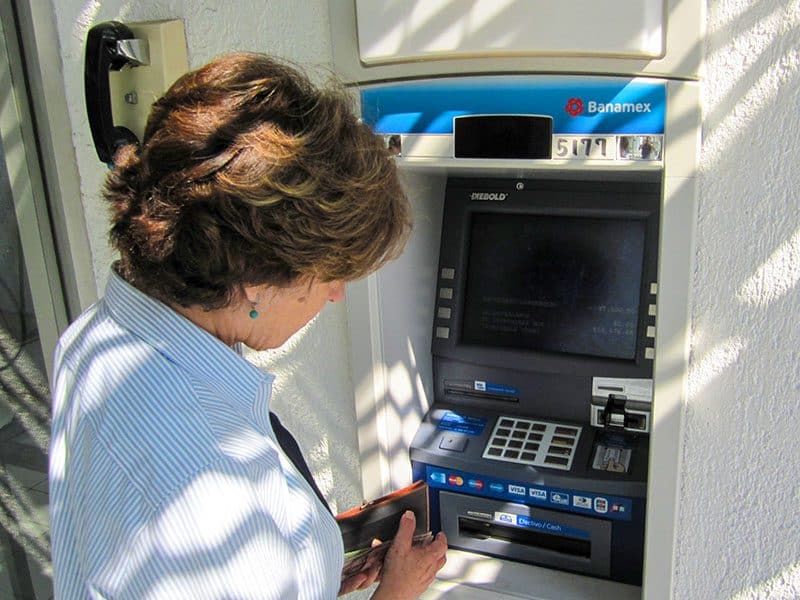
Know the Exchange Rate Before You Go
Another good budget trip tip: although you’ll likely be charged a fee for using an ATM while traveling overseas, it will still be less costly than exchanging your currency for foreign bills at home.
Remember also that when you use an ATM, you must withdraw any amount in that country’s currency, not your own. Thus, you must know the exchange rate to know how much to withdraw. And since your bank will charge you every time you withdraw, it’s best to withdraw as much as you need at one time.
Don’t, however, carry all that money around with you. Spread it out – take just what you’ll need for a day with you, lock some in your suitcase, also some in the safe at your hotel – to lessen your loss should it get lost or stolen.
Consider Travel Insurance
Usually, it’s not worth buying travel insurance if you’re attempting a bare-bones budget trip. Nevertheless, you should check your insurance policies, such as health or rental car insurance, to see what is covered. Regarding the latter, see our article Should I Get Insurance When Renting a Car?
However, if you’re booking a package trip or cruise, it’s sometimes worth paying a small additional cancellation fee to protect yourself.
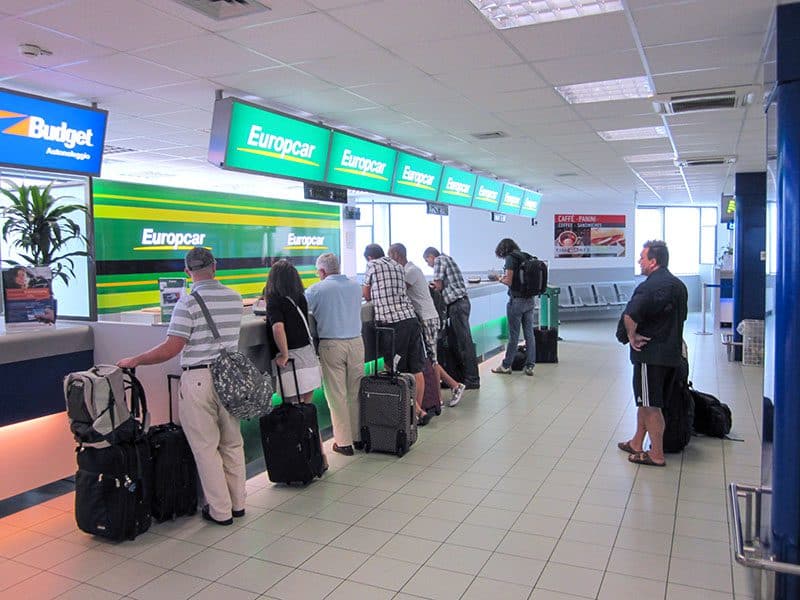
Get A Less Expensive Rental Car
Here’s a neat budget trip trick: always book a small car at the earliest pick-up time when renting a car. The reason: you’ll sometimes be upgraded since most compact rentals aren’t returned until later in the morning. If your car isn’t available, the companies are required by law to offer you an upgrade at the same price as the compact.
In addition, keep in mind there are rental car companies outside the airport where rates are lower. Also, don’t forget to use any rental car discounts you’ll have if you’re a member of AARP or other organizations. There are also many car rental discounts offered through various credit cards and organizations. Be sure to read Should I Get Insurance When Renting a Car?

Call the Hotel Directly
When you’re budgeting for a trip, have you done a lot of online searches but find the hotel’s rates are still too high? The solution: call the hotel directly since they sometimes provide a lower rate.
If you still think it’s beyond your budget and you have some flexibility with your trip, ask when rates will be more moderate during the year or a specific period. For more ways to potentially lower that rate, read Ways To Save on Hotels.
Pack Smarter to Avoid Luggage Fees
Want to develop a trip budget that saves you money on airline fees? Pack fewer things for your trip and get a carry-on or, at least, a smaller suitcase. In two words: pack smarter.
People who travel a lot (and pay airline luggage fees) know how important it is to pack smarter. In fact, many of us travel only with a carry-on.
Whether I travel for three days, weeks, or months, I only fly with a carry-on and one personal item. That “item,” a medium-sized backpack, holds my camera equipment, electronics, and computer. As for clothing, all my shirts, pants, jeans, etc., match at least three other items.
I survive by packing only enough clothing to last about a week. That’s when I schedule myself to be in a hotel with laundry facilities for at least two nights. I have my clothes laundered during that time.
On my trip budgets this works quite well since hotel laundry service, although a bit overpriced, is still cheaper than paying excess luggage fees. And I don’t have to schlep a heavy suitcase all over the world…or wait at the luggage carousel…or have my luggage lost by the airline.

Use Travel Discounts
Many organizations, including insurance companies, provide substantial travel discounts to their members. This is a priceless element of any trip budget.
Although this is not a totally inclusive list, some of these national organizations include AAA (discounts on travel advisors, cruises, insurance, vacation packages, trains, etc.), Costco (car rentals, hotels and resorts, cruises, vacation packages), AARP (car rentals, cruises, flights, vacation packages, hotels and resorts, rail and tours, travel planning), Union Plus (car rentals, hotels and resorts, tours and attractions), and the American Legion (hotels and resorts, flights, cruises, car rentals, and tours).
You’ll likely find more with the companies you patronize.
Use a Trip-Planner App
Obviously, bringing all your travel information – including flight times, hotel reservations, etc. – with you on a trip is essential. But you can, however, easily lose papers that you carry with you.
A good budget travel tip is to use a trip-planning app on your phone instead that will keep everything neat and at your fingertips (literally). When traveling, use apps like TripIt, Google Trips, or Roadtrippers on your phone or tablet. They’ll keep everything safe and provide you with the necessary trip details.
Use Google Maps
Whether you’re on a budget trip or not, you’ll find Google Maps to be an excellent way to help you find your way about an unfamiliar destination. It even provides live traffic information in some European countries.
But it’s more than just an good way to get you to the Eiffel Tower or the Roman Forum. I’ve used it when taking a taxi to/from an airport to ensure the driver takes the shortest route possible.
Take a Walking Tour
Wherever you may go, walking about a city, rather than taking taxis is a very good element of any budget trip. In many major cities a quick Google serach will show you walking tours that are given for free of charge. You are only requested to give your guide a tip based on your percetpion of the quality of the tour.
You can also develop your own walking tour of a city utilizing a good guidebook and Google Maps (above). In Europe, most large cities are perfect for a do-it-yourself-walking tour.
See: Things to Do in Prague…With a Map for a Walking Tour / Where to Find 8 Wonderful Walks in Paris / Where to Find 8 Fascinating Walks in Rome

Ship Your Luggage Ahead
With the excess baggage fees being charged by many airlines these days, it may make sense to ship your luggage ahead in extreme situations. Check Airfarewatchdog to see a list of baggage and other fees now charged, and then visit UPS or FedEx. Although I’ve never shipped my luggage at the onset of my travels, I have shipped some of it home before returning to lessen the load of things accumulated.
Check the Validity of Your Passport
Many countries require three months of validity remaining on your passport after you arrive home. Others require six months validity, especially in Asia. Applying for a new passport can be worthwhile if you are nearing that six-month limit. A good thing to do when developing a trip budget is to first check the passport requirements of each country, or you may be denied boarding at the airport or cruise terminal.
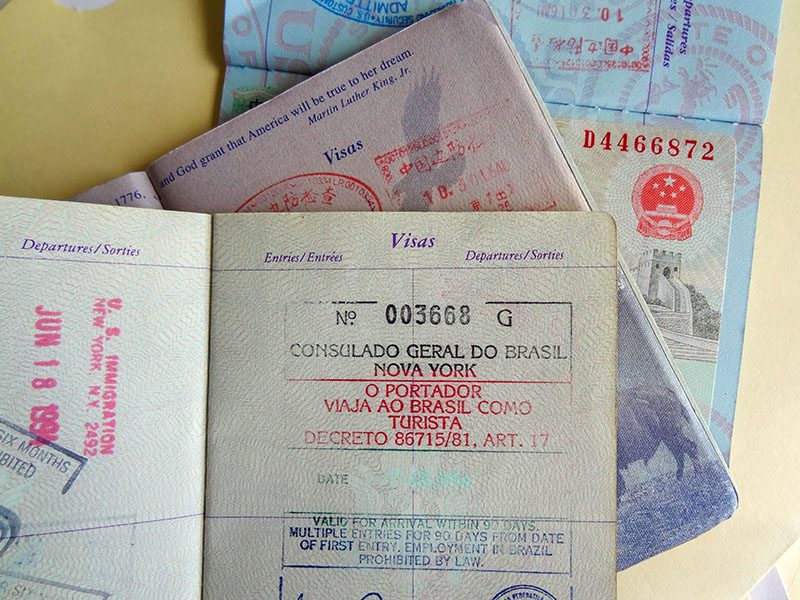
Do Your Visa Homework
Another item to include on your trip budget may be a visa, which are still required by some countries. Some are relatively straightforward, only requiring payment of a fee online or at the airport when you arrive. (Be aware, however, that this visa fee must often be paid in cash only). Other visas are more onerous, costly, and difficult to purchase. See Countries Requiring Visas for US Citizens for a review of some of these visas to prepare you well before your travels. Canadians should check the government’s Travel Advice and Advisories.
Note: This information on flight savings, augments other recommendations included in this article, including Plan Wisely, Time Your Travel, Stretch Your Budget, and Check for Discounts.
Book As a Group
If you can pull a group together, you can save a good amount on hotels, travel insurance, and sometimes transportation. Most travel companies, including tour operators, airlines, and cruise lines, have specialized departments to work with large groups. They often throw in extras to make your budget trip more comfortable and appealing. Always ask about the savings when you call.
Sign Up For Price Alerts
If you’re developing a trip budget, signing up for price alerts on online booking sites can be exceptionally helpful. Travelocity, Expedia, Kayak, and Airfarewatchdog, for example, will email you with updates on fares. Several airlines will also notify you of special fares, especially last-minute deals.
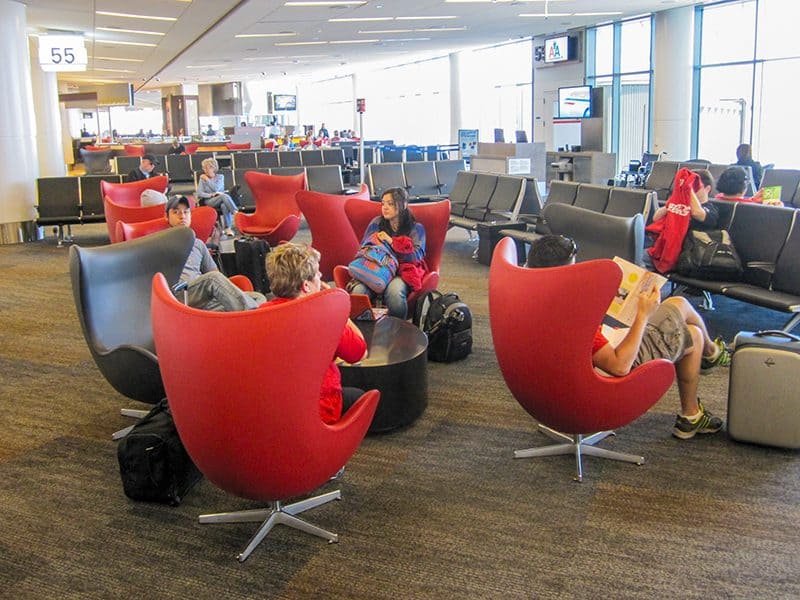
Fly In the Morning
Early mornings offer the best opportunity for a lower fare and on-time departure, a boon for any trip budget. Since many people don’t like early morning flights, airlines set lower fares at that time to try to entice them.
Also, in the early morning, you can usually avoid the delays that get compounded later in the day. The exception is in cities like San Francisco, where morning fog can wreak schedule havoc.
Purchase Tickets As a Group
If you can pull a group together, you can save a good amount on hotels, travel insurance, and, sometimes, transportation on your trip budget.
Most travel companies, including tour operators, airlines, and cruise lines, have specialized departments to work with large groups. They often throw in extras to make your trip more comfortable and appealing. Always ask about the savings when you call.
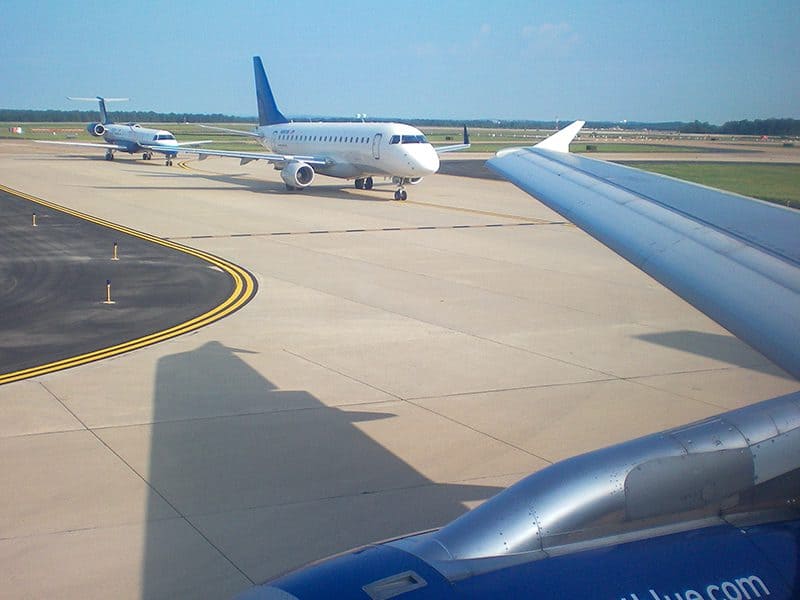
Avoid Flight Delays
Time is money, especially when you’re spending your hard-earned vacation dollars. If you get stuck by a flight delay, you could miss your connecting flight to London or your cruise in Miami.
You can, however, stack the odds in your favor by checking which U.S. airports are most prone to flight delays. A simple Google search for “best worst US airport delays” will reveal plenty of information to use in a trip budget.
Note that you also have rights if you are bumped from an overbooked flight.
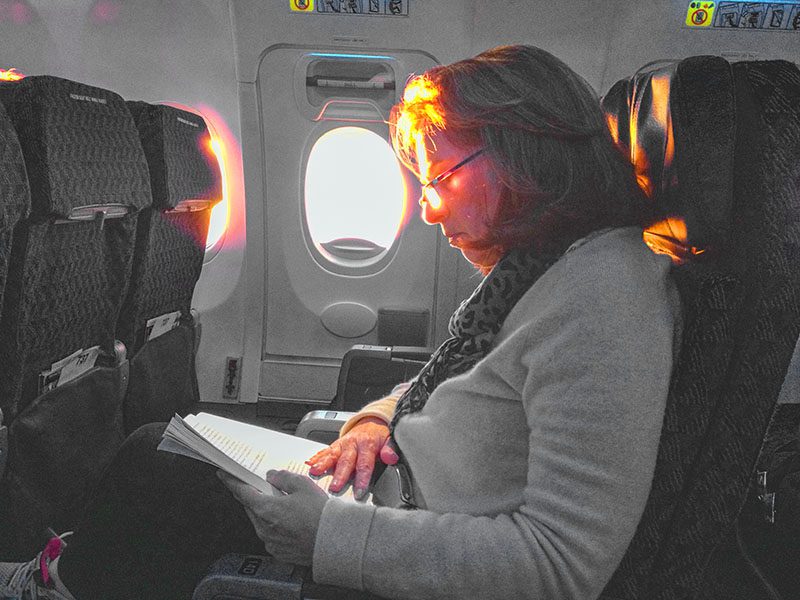
Don’t Choose Your Airline Seat at the Airport
We all know most carriers charge fees for premium seats. Others, especially the highly discounted carriers, charge extra for any seat you select. If flying a discount carrier, reserve the seat online, or you may pay double the cost at the airport.
Finagle a Better Seat
If you’re looking for a good seat but haven’t found one, inquire at the boarding gate if one is available. The agent will likely give it to you at no additional fee if one is available.
Another good budget trip tip is to select a better seat at the check-in kiosk. You may be surprised since people cancel their flights and change their seats right up to about an hour before the flight.
The same holds true if you’re in a carrier’s lounge. For example, the helpdesk will try to find you the desired seat in American’s Admirals Club at no additional cost.
Be Careful With Your Luggage
Another budget trip tip: it pays to check ahead of time regarding your carrier’s checked baggage weight limitations since they sometimes differ between airlines.
Many budget carriers will also charge you an additional fee (sometimes twice the online fee) if you don’t tell them you’ll check a bag and prepay the fee online.
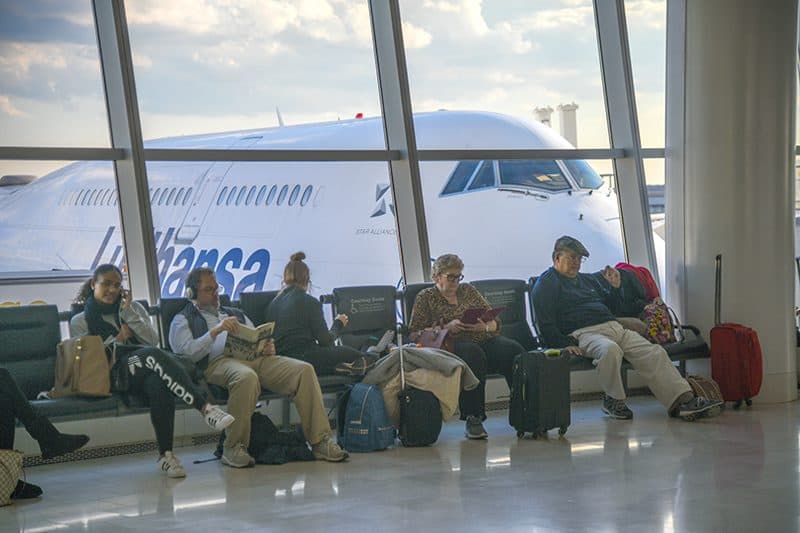
Collect for Those Delays
We’ve all faced flight delays, but many of us aren’t aware of whether or not we should be compensated for them. In the U.S., if you are involuntarily bumped from a flight, you could be owed up to $1,300.
An excellent budget trip tip is to know that European Union law requires a payment of $750 for a flight that is overbooked, canceled, or delayed. And you needn’t be a European to collect it.
European airlines that are departing the U.S. are also subject to the law. It is not valid, however, if a U.S. carrier operates a European airline flight in a code-share agreement.
And there’s Air Care, a Berkshire Hathaway company. It provides near-instant payment for flight delays, missed connections, lost or stolen luggage, etc., for a flat $25 fee. A tarmac delay of more than 2 hours nets you $1,000 without filling out forms. They also provide the fastest claim payments in the travel insurance industry.
Want a Budget Cruise? Book Early or Late
Booking a cruise six months to a year early often results in you nabbing the lowest price for your budget trip. On the other hand, you may find some cruise deals close to the sailing date if the line is trying to fill empty cabins.
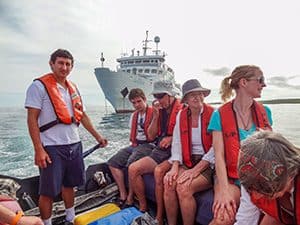
If you live in one of the major cruise ports – Miami, Galveston, Los Angeles, or Seattle, for example – there is a chance you could snag a last-minute cruise at a low price.
In addition, Holland America has launched a new standby program offering fares of $49 per person per day if passengers don’t mind traveling on short notice. Guests can sign up for a standby list on eligible sailings. They will be notified approximately seven days before departure if they are cleared.
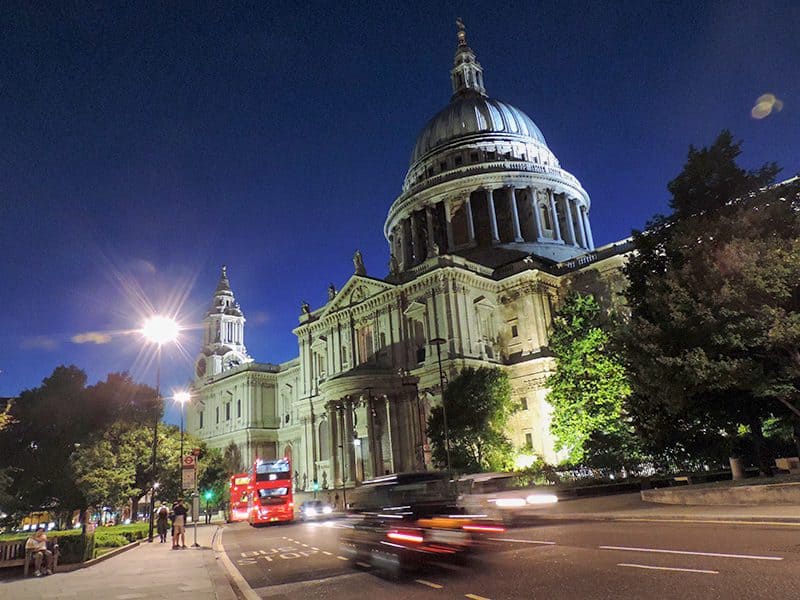
Save Money: Use Public Transportation
One of the best budget trip tips to save money in most destinations worldwide is to use public transportation rather than take a taxi. Thankfully, many of the most popular places you may want to visit will have a well-developed transportation network of buses, metros, and/or trolleys.
Often, you can get a map of a city’s public transportation network online when planning a trip. Use it to find a hotel near a central transportation hub.
In many European destinations, you’ll also find private bus companies that provide intercity service on modern, comfortable buses. See a sampling of service and costs at 26 Great European Day Trips by Rail / Bus.
If you’re traveling in the U.S. and fed up with the crowds at the airport, consider taking an inter-city bus. These new-style buses are a lot cheaper than air travel. They also pick you up and drop you off in the city center. Bolt Bus FlixBus will take you from New York to Washington, or Seattle to Portland, for about $30 one way. And this is in a modern bus with reserved seats, extra legroom, and Wi-Fi.

Eat Cheap But Well
Another of the best budget trip tips is to get out of the tourist zone and/or the city center if you want to eat cheaply while traveling.
In some cities/countries (London, Helsinki, and Paris, among others), you can buy pre-made meals in supermarkets or the food section of some upscale department stores. You’ll also save money by having a picnic in a local park, along a riverbank, etc., with sandwiches you’ve bought in a local store or at the market. I’ve done this often in the UK, Ireland, France, and other countries on my budget trips.
Also, be observant as you walk around a city to see which restaurants are most popular, especially at lunchtime. For many years, while visiting Rome, I would walk about the old area of the city south of the Piazza Del Popolo in search of nuns lunching in restaurants.
My theory – which worked out exceptionally well – was that since nuns were on a fixed budget, they would know the best affordable local restaurants. It worked exceptionally well, and I still do it today.

Make Your Food Budget Go Further
In some small restaurants in Italy, you can still go into the kitchen and show the chef which piece of meat you’d like for your meal.
For a delicious meal in any small restaurant, ask the chef to cook you one of his favorite dishes not on the menu. I’ve always enjoyed a four-star meal at two-star prices whenever I’ve asked.
Always carry a water bottle which you can refill. You’ll save money not buying fresh bottles while out and about. And remember that drinking beer and wine with every dinner can add up unless it’s an inexpensive local product.
To help stick to your budget on a trip, at your hotel or hostel inquire about good local restaurants or food halls that tourists don’t visit. If you’re renting an apartment or villa, ask the owners who may have checked you in. Also, ask other tourists you meet along the way. They’re all wonderful fonts of information that can steer you in the right direction.
And, finally, don’t even think about touching the hotel’s mini-bar.

Combine Several Destinations
Suppose you’re lucky enough to have some flexibility in your travel schedule. Might you be able to include several destinations on your trip? My wife and I visited Madrid and Barcelona (both great cities) on the same trip. On a recent trip to Japan, we also enjoyed visiting multiple cities, each of which was unique.
I’ve visited Singapore, Thailand, Cambodia, and Vietnam all on the same budgeted trip. And it wasn’t at all exhausting. The key is to pace your travel and not to cram too much in a set number of days.
For example, visit several islands, not just one, if you’re visiting the Caribbean. In Mexico City? Also, visit the country’s colonial towns. If you’re going to Washington, DC, plan to spend a few days in Maryland or Virginia (or both).
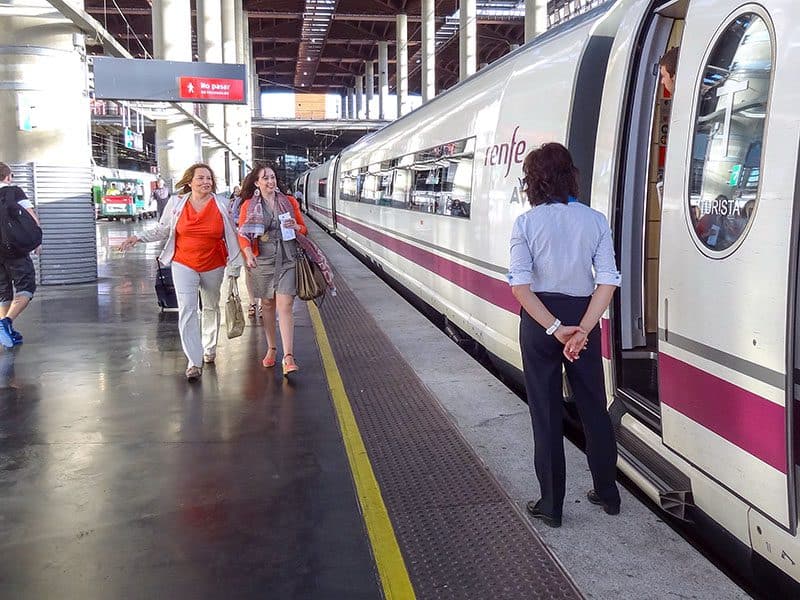
Use Your Rail Pass to the Max on a Budget Trip
Rail travel, especially in Europe, is top-notch. Trains are comfortable, clean, and run on time (mostly, anyway). That’s why so many budget-trip travelers buy passes such as the Eurorail Pass. Depending on which pass you purchase, you can travel all over Europe for a reasonable price.
Many travelers only use such passes to travel between major cities. They don’t, however, see its additional benefit: you can also use it to travel to some of the smaller spectacular cities serviced by European railroads. For example, instead of only traveling between Madrid and Barcelona, why not make a train day trip from Madrid to Toledo or Segovia, the latter where many Madrileños go for lunch on weekends.
If in London, make a train day trip to Bath. In Brussels, take a train to beautiful Bruges, only 33 minutes away. In Rome, you’ll find that Florence is only 1½ hours away. See many more at 26 Great European Day Trips by Rail / Bus.
Know How to Pay to Save Money
If you use a credit card while traveling (a good thing to do), never have the restaurant or merchant convert your bill to dollars or whatever your national currency may be. You’ll get a much better exchange rate when your bank converts at home.
Some credit cards don’t charge a foreign transaction fee, which can be a considerable savings. A good budget-travel tip is to check all your cards to see which don’t, and only use that card(s) while traveling.
If none of yours offer the free-fee service, it may be worth applying for a card that does. Even though it is no longer required, I often alert my credit card issuers of where I’ll travel to avoid any possible issues.
Budget by Using Villas, All-Inclusives, Hostels
Another way to save a budget trip is to rethink your accommodations since you don’t always need a hotel. For example, if you’re with a group, you may want to stay in a villa instead of a hotel. We’ve done this several times in Europe, saving money.
Staying in a hotel outside a city or in a lesser-known area of a town can also be cost-efficient. Just be sure your transportation costs to the areas you want to see aren’t exorbitant .
Travelers used to be able to stay in college dormitories during vacation periods, and you didn’t need to be a student. Unfortunately, I can’t vouch for any now, although you may want to look into it at your destination.
Also, consider Airbnb and VRBO (Vacation Rentals by Owner, owned by Expedia)for short-term apartment rentals since both are much less costly than hotels. You will find a list of hostels, especially good for solo travelers, at HostelWorld.
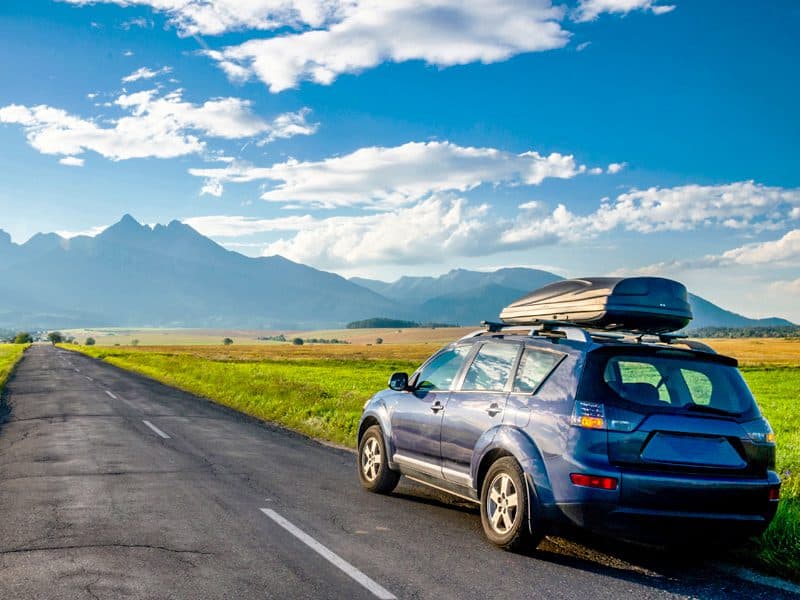
Should You Make It a Road Trip?
We’ve taken road trips to many places in North America and Europe, which I’ve found to be good trips that didn’t break the budget.
So, instead of staying only in one city, why not take a rental car on a road trip to several destinations? It’s easy to do and is an economical way to see a region or, in some cases, an entire country (read about my trip to San Marino, the least visited country in Europe).
My wife, Marjorie, and I also had a fantastic road trip from Paris to the Normandy beaches and back to Paris. We picked up our car at CDG Airport, without ever going into the city, and returned it a week later. At the same time, we saw several great French cities and toured the Châteaux of the Loire Valley. Since we had the mobility to go anywhere, we also saved a lot on hotels and restaurants.
See Normandy from Paris: an Easy 2-Day Trip / 3 Day Trips From Munich to Great Bavarian River Towns / Puglia Road Trip (With a Map) – Italy’s Sensational Adriatic Coast
Know How Much to Tip
It’s always good in a trip budget to know the tipping etiquette of any country you’ll visit or whether to tip at all. In Japan, for example, one does not tip and, in fact, is considered insulting.
But it can sometimes be exasperating trying to figure out how much to tip in a foreign country – as well as occasionally costly. Here’s an excellent tipping guide from Condé Nast Traveler that sheds light on the subject.
Heading Off? Breeze Through Security
In the U.S. you can save a lot of time at airport security by using the Pre-Check program. Want to save even (a lot) more? Enroll in a program such as Clear. It’s the faster, easiest way to go to the front of the security lines at more than 55 airports throughout the USA.
Although its annual cost is $189, it is provided for free to holders of American Express Platinum cards. It’s also provided at a discount through some airline loyalty programs including United MileagePlus and Delta SkyMiles. And when you enroll, the first month is free.
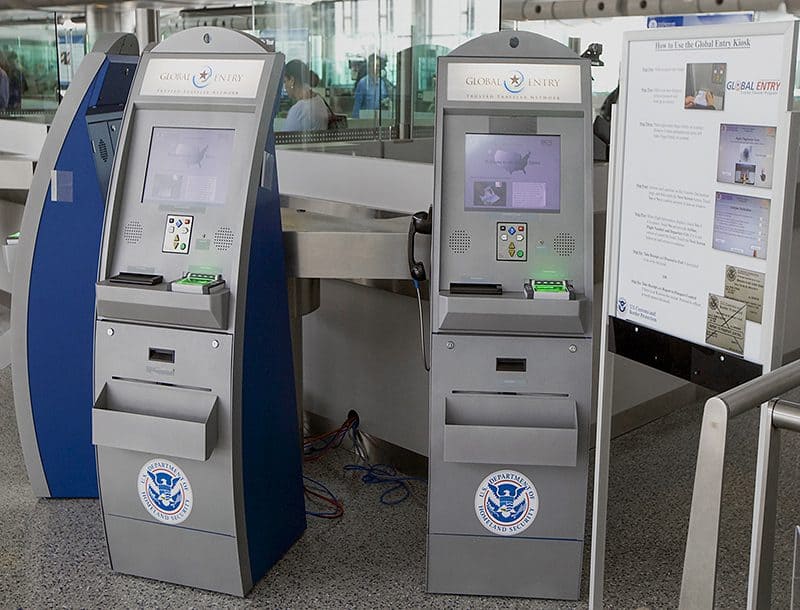
On Your Return Breeze Through Passport Control and Customs
If you want to save time on your return to the U.S. enroll in the Global Entry program. It’s always been good but now it’s faster than ever at some airports.
The last two times I’ve used it I’ve cleared Customs/Immigration in less than 3 minutes from the time I inserted my ID card in the airport Global Entry kiosk. Go to Global Entry to apply for it.
If you have an American Express Gold Corporate or Platinum card, or a Citi AAdvantage Executive credit card, the fee is paid for you. This makes it exceptionally valuable for anyone who wants to budget their trips.
You can now also expedite your customs clearance in Asia by getting the APEC Business Travel Card In the UK the Border Force has opened a similar program to U.S., Australian, Canadian, Japanese and New Zealand travelers for a £70 fee.
Clear Customs Outside the USA
If you’re American, you can clear Customs overseas at 15 locations and avert the mob at your U.S. arrival airport. You’ll find it at Dublin and Shannon in Ireland; Aruba; Bermuda; Abu Dhabi in the UAE; Nassau in the Bahamas; and Calgary, Toronto, Edmonton, Halifax, Montreal, Ottawa, Vancouver, Victoria, and Winnipeg in Canada.
I’ve used it several times and can’t recommend it enough.

Leave a Reply